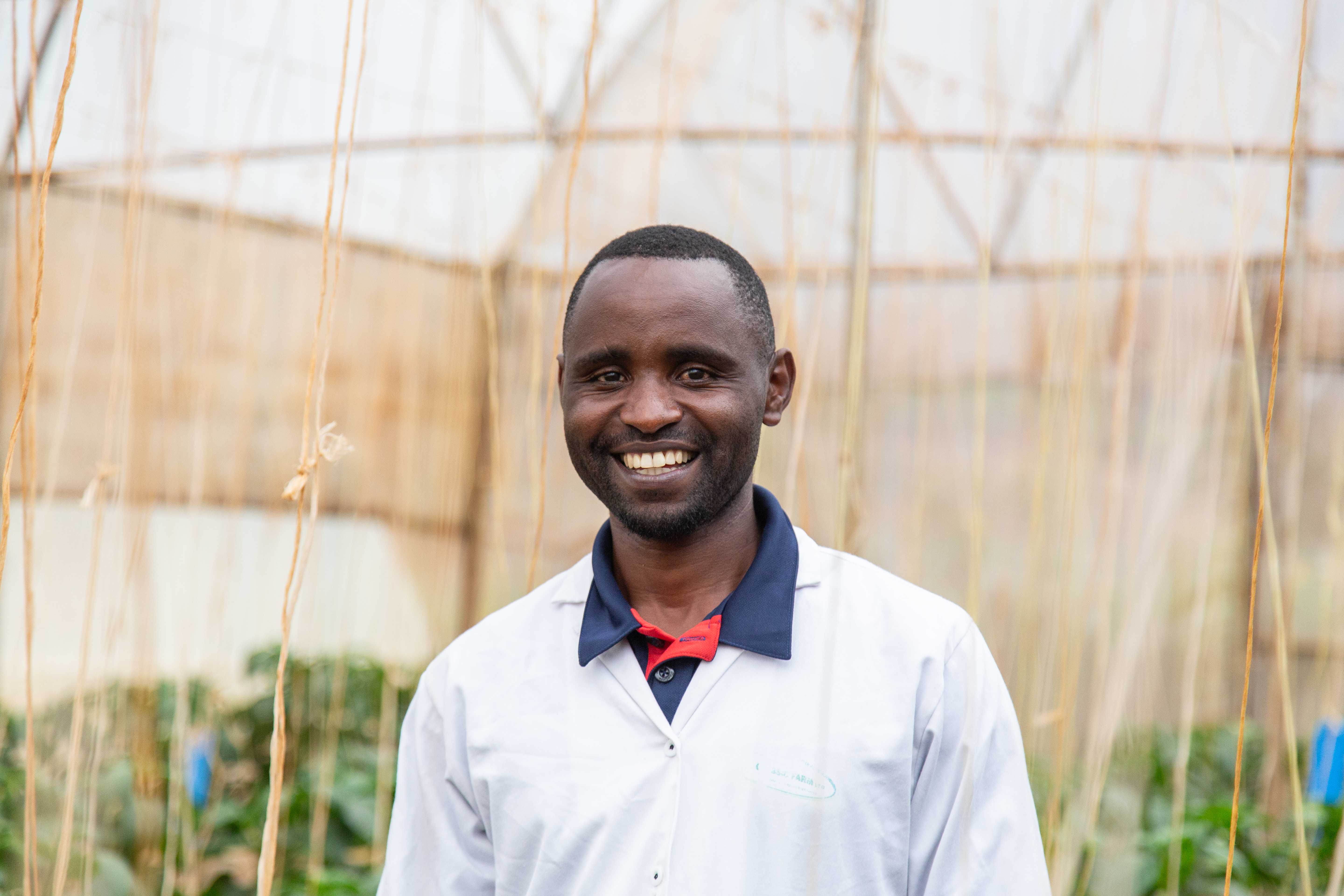Classic Farm
Seraphin Nsengiyumva descends from a family of farmers. Even while studying engineering at university, he knew that he would apply his learning to improve agriculture practices in Rwanda. His ambition is to farm well, in a way that will improve and increase food production and reduce food scarcity.
Since 2019, Classic Farm has evolved from growing tomato plants in a wood-framed greenhouse to a fully-fledged modern site with new infrastructure and a wider range of crops. It also features a fish farm, which relies on circular practices to increase production and minimize waste through the re-use of fish effluent for crop irrigation.
Like many of the agricultural entrepreneurs who are part of CIRF Cohorts 1 and 2, Seraphin has been bold in experimenting with new ideas and innovation.
Seeking to find an alternative to imported industrial fertilizers, Seraphin tried the commonly used urea to support tomato plant growth, but found to his horror that it burnt the leaves. In response, he sought the advice of farming friends who explained the necessity of a multi-application process combined with irrigation. He tells the story praising the shared knowledge and experience of his peers and seeking to always remain open to learning more.
With six full time employees, Classic Farm is also working with the local community to source animal manure to make their own organic compost, which, combined with the fish effluent from their farm, is providing vital nutrients for their crops.
Seraphin is excited about new opportunities, including expanding the work to include Black Soldier Flies which will provide valuable protein for their crops, and improve the quality and quantity of their output. He hopes that a greater engagement with circular practices will increase his farm income and reduce soil pollution.
Seraphin is also hopeful about the prospect of circularity for Rwanda, with better, more sustainable agricultural growth providing employment and increasing food security.

